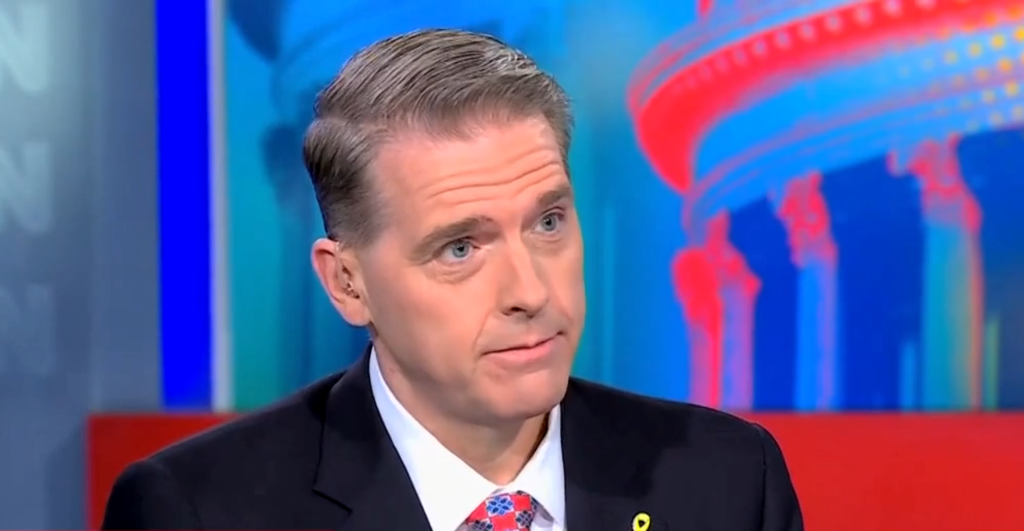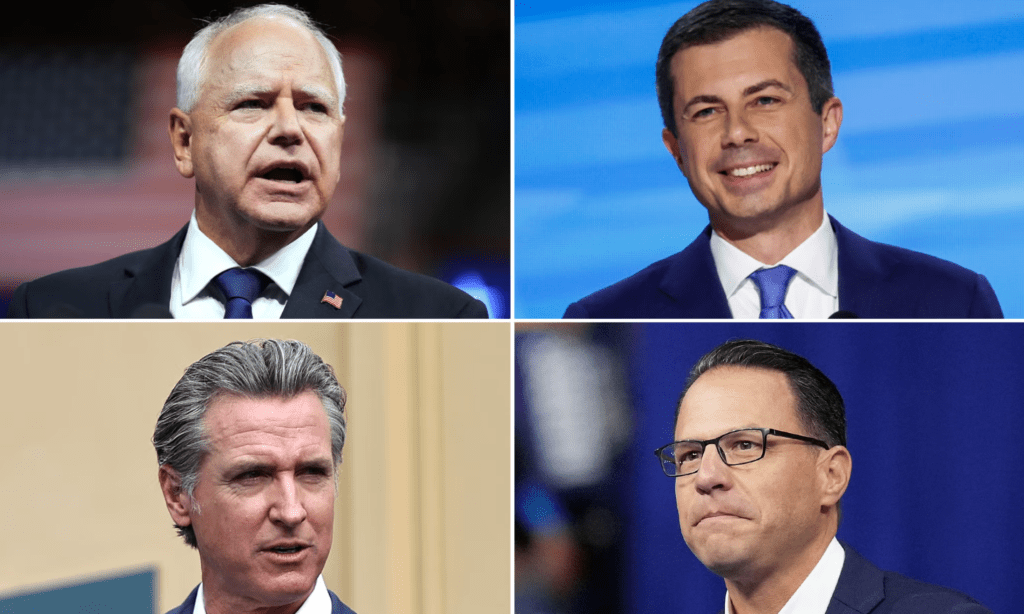Mexico’s President Claudia Sheinbaum has warned that if the Trump administration moves forward with its plan to designate Mexican drug cartels as terrorist organizations, her government will expand its lawsuit against U.S. gun manufacturers—potentially accusing them of complicity in organized crime.
“If they declare these criminal groups as terrorists, then we’ll have to expand our US lawsuit,” Sheinbaum stated, as reported by The Guardian.
Sheinbaum hinted that Mexico’s legal strategy could argue that American gun companies are indirectly aiding these so-called terrorist groups by allowing firearms to flow south.
“The lawyers are looking at it, but they could be accomplices,” she added.
The Mexican Government’s lawsuit claimed U.S. gun companies were trafficking firearms into the country:
Plaintiff Estados Unidos Mexicanos (the “Government”), a sovereign nation, brings this action to put an end to the massive damage that the Defendants cause by actively facilitating the unlawful trafficking of their guns to drug cartels and other criminals in Mexico. Almost all guns recovered at crime scenes in Mexico — 70% to 90% of them — were trafficked from the U.S. The Defendants include the six U.S.-based manufacturers whose guns are most often recovered in Mexico — Smith & Wesson, Beretta, Century Arms, Colt, Glock, and Ruger. Another manufacturer defendant is Barrett, whose .50 caliber sniper rifle is a weapon of war prized by the drug cartels. The remaining defendant — Interstate Arms — is a Boston-area wholesaler through which all but one of the defendant manufacturers sell their guns for re-sale to gun dealers throughout the U.S.
Mexico has long pushed for tighter U.S. gun control, arguing that lax American regulations fuel cartel violence. The country filed a $10 billion lawsuit against six U.S. gun manufacturers and a wholesaler in 2021, claiming their firearms were being trafficked into Mexico and used in violent crimes. The case was largely dismissed by a U.S. judge in 2024, but aspects of the lawsuit remain active, particularly against Smith & Wesson and Interstate Arms.
This legal escalation comes as tensions between Mexico and the U.S. continue to mount over the cross-border drug trade, particularly the fentanyl crisis. The Trump administration, citing the massive flow of synthetic opioids into the U.S., has signaled its intent to designate major cartels—such as the Jalisco New Generation Cartel (CJNG) and the Sinaloa Cartel—as terrorist organizations. The move could open the door for more aggressive U.S. military and intelligence operations against cartel networks operating within Mexico.
While Sheinbaum’s government seeks to hold U.S. gunmakers accountable, Mexico itself faces serious scrutiny for failing to curb the trafficking of fentanyl into the United States.
A Reuters investigation detailed how Mexican cartels, in collaboration with Chinese chemical suppliers, are running a vast fentanyl production network, with smugglers using corruption, bribery, and logistical loopholes to move precursor chemicals into cartel-controlled drug labs.
According to Reuters, brokers in Mexico coordinate with Chinese suppliers to import fentanyl precursors, disguise shipments, and bribe officials to move chemicals through major ports like Manzanillo and Lázaro Cárdenas. The cartels’ chemical operations have proven difficult to dismantle, as corrupt Mexican officials often turn a blind eye or actively assist in the smuggling process.
The Sheinbaum administration’s push to sue American gunmakers over cartel violence contrasts sharply with Mexico’s failure to stop fentanyl production and trafficking, which has led to over 400,000 overdose deaths in the U.S. over the past decade.
There are some analysts who believe that Mexico is carrying out a Chinese proxy war against the United States using fentanyl as a weapon.
Reuters reported on the China-Mexico fentanyl connection:
China is the dominant source of chemical precursors used by Mexican cartels to produce fentanyl, while Chinese money launderers have become key players in the international drug trade, U.S. authorities say. The Biden administration has been negotiating with Beijing for the past year to crack down on both. Diplomacy has yielded promising but modest results so far. That has frustrated some U.S. security officials and China hawks who say the U.S. must ratchet up the pressure to get Beijing’s leadership to act.
Despite its strict gun laws, Mexico remains plagued by violence, with over 480,000 drug-related killings since 2006. The argument that American guns fuel cartel warfare ignores Mexico’s deep-rooted issues of corruption, cartel influence, and weak law enforcement.
At the same time, U.S. officials argue that Mexico is effectively allowing a war to be waged against American citizens through unchecked fentanyl trafficking—a crisis that has devastated families across the United States.
Sheinbaum has already rejected accusations from the Trump administration that her government is allied with cartels, calling them “slander” and shifting the blame back to the U.S..
“If there is such an alliance anywhere, it is in the US gun shops that sell high-powered weapons to these criminal groups,” she said on social media platform X.
However, the U.S. could apply the same logic in reverse—arguing that by failing to crack down on cartel production of fentanyl and its precursors, Mexico is complicit in the trafficking of a deadly poison into American communities.
As tensions rise, both nations face the challenge of balancing accountability—but if Mexico wants to pursue lawsuits against U.S. gunmakers, it must also answer for its role in fueling America’s opioid epidemic.
President Trump’s tariff threat against its southern neighbor has reignited discussions in Mexico about reducing reliance on the U.S. for trade—currently, about 80% of Mexico’s exports go to the U.S.. Mexico’s recent agreement with the European Union to update their trade deal is seen as a step toward diversification, though experts warn that non-tariff trade barriers, such as EU agricultural regulations, pose challenges.
Looking ahead, Mexico is preparing for a review of the USMCA next year. Ricardo Aranda, a former Mexican trade negotiator, noted that with Trump’s trade representative still unconfirmed, it’s difficult to predict what changes the U.S. might seek.
If Mexico wants to ramp up threats against the United States to attempt to shield drug cartels from foreign accountability, the Trump administration may not have a choice but to resort to economic coercion as a resort short of military intervention.
U.S. Intel Agencies Dismantle DEI Initiatives Following Trump’s Executive Order


